We recently wrote about the closing workshop we held in December, in collaboration with CABRI, for the Building PFM Capabilities in Africa program. There is now a summary event page on the CABRI website with all of the presentations from the seven participating country teams. During the workshop, each team presented on the progress they made on their self-identified problems over the previous six months, the lessons they learned, and their next steps.
As highlighted in the closing remarks by Matt Andrews, all of the teams achieved real results. Financial reporting rates went up, budgets were prepared faster, and stocks of arrears decreased. And this is just the beginning. All of the teams now have a better understanding of the root causes of their problems (with more evidence) and have ideas and plans for what they will be doing next (with more authorization).
Below is a short summary of each country team’s presentation, including some photos and a link to download the full presentation. It was inspiring to see all of the great work done by the teams and we are excited to follow how they carry this work forward in 2018.
1. The Gambia
Problem: Misallocation of resources leading to weak implementation as a result of high debt burden, high level of arrears and high volume of virements.
What was done: The team established guidelines and templates for budget reporting to strengthen M&E of the budget. The team had arrears verified and authenticated by the Internal Audit to ensure arrears are legally incurred and to avoid the settlement of fraudulent invoices. Finally, the team trained and sensitized vote controllers, accountants and procurement officers on budget reporting and fiscal risks related to arrears.
What was learned: Consistent behavior is key to team discipline. Engaging and collaborating with others made it a “we” problem and made things less of an imposition. Once you can demonstrate the importance of issues, you are likely to get the required support.
What is next: Large goals are to revise the 75% cap on virements and clearly define arrears in Public Finance Act. Immediate next steps are to release new budget execution guidelines, organize quarterly meetings between audit and budget, and put MDAs that are on post-paid electricity on pre-paid.
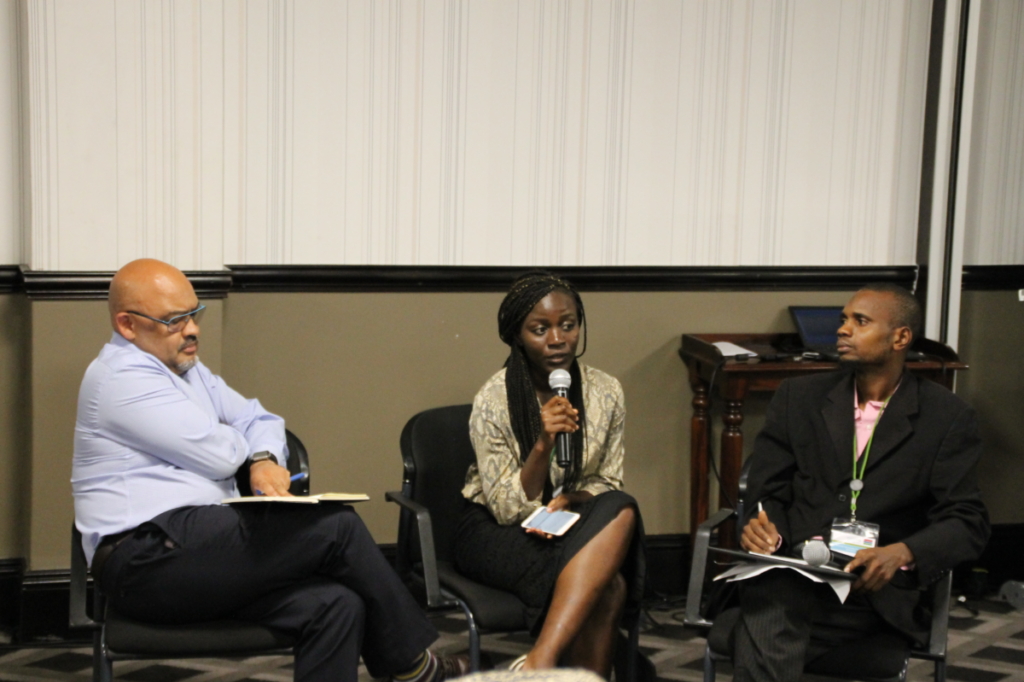
2. Ghana
Problem: Insufficient discretionary fiscal space associated with non-lodgement in gross of retained Internally Generated Funds.
What was done: The team developed and submitted a concept paper for the establishment of a common data platform. The team used the national budget process to sensitize MDAs on the relevant legal provisions. The team operationalized a mechanism for lodgment in gross of retained NTR/IGF receipts by MDAs.
What was learned: Ownership and a clear understanding of the problem. The importance of modification and adjustments.
What is next: The team will further engagement with the Ghana Audit Service and continue the regular use of existing budget processes for the sensitization of MDAs.
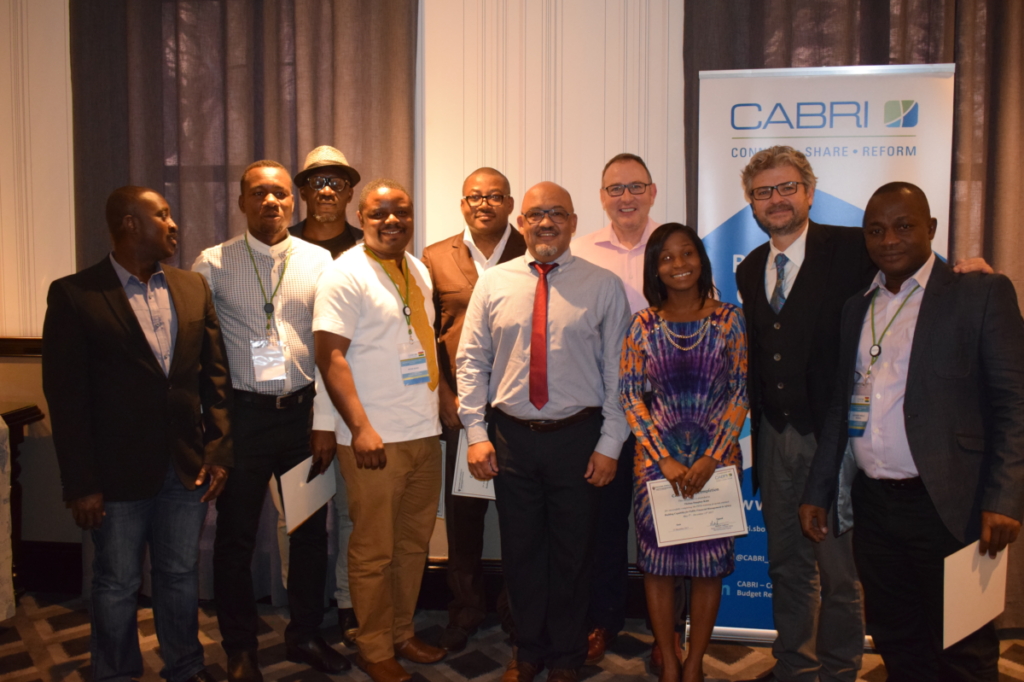
3. Lesotho
Problem: MDAs do not adhere to the given ceilings/appropriated budget.
What was done: The team embarked on an extensive consultation process with MDAs and numerous departments within the Treasury. The team conducted training sessions for all 35 MDAs in groups for four days. The team established a Technical Working Group to improve the economic assumptions underlying forecasts. The team also did analysis of
What was learned: Reforms need dedicated teams. Collaboration with other departments in the ministry is essential for the success of this
What is next: The Ministry of Finance should work with MDAs to seriously address the
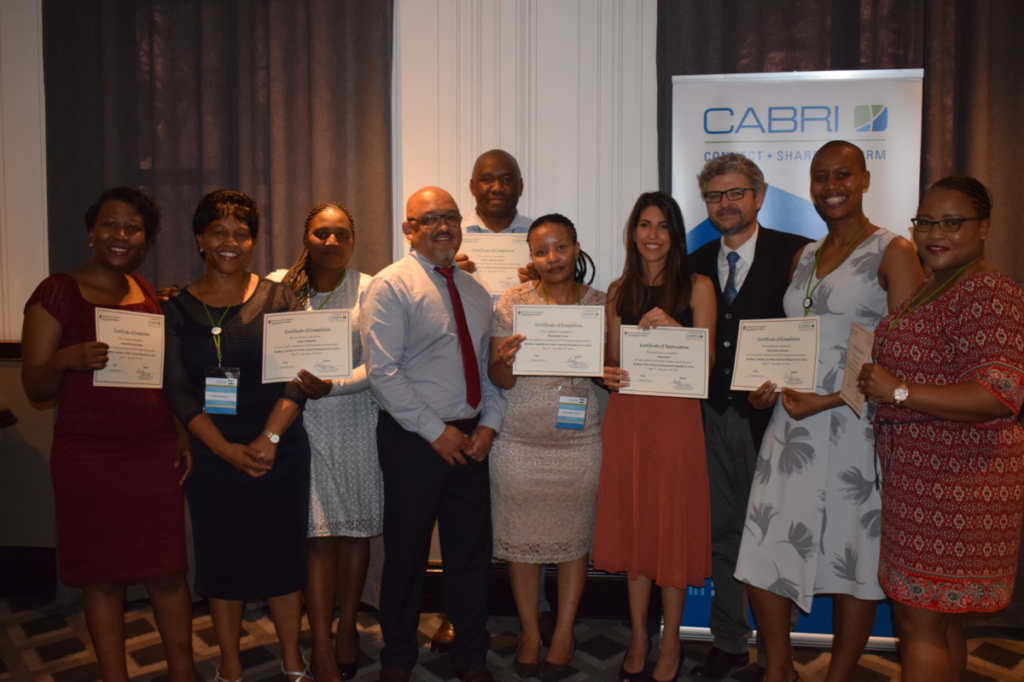
4. Liberia
Problem: Spending entities don’t execute their budgets as planned. Off-budget expenditures and on-budget transfers have increased over the years at the expense of on-budget programs in health, education, etc., which has resulted in inadequate financing for critical health and education programs, among others.
What was done: The team conducted a mini-survey with spending entities to improve reporting templates. With the new reporting templates, the percentage of spending entities submitting financial reports increased to 68.2% from 52.8% in the previous quarter. The team also reactivated and operationalized the Liquidity Management Committee (LMC).
What was learned: Successfully working together as a team required clearly defining tasks and regularly assessing progress. Tackling the problem required listening to many people to understand the problem from their perspectives. Yes, reforms can be implemented during election periods.
What is next: The team’s immediate next step is to work on political interference in budget execution that leads to off-budget expenditures. The team will prepare for the political transition in January 2018 by documenting the process improvements as part of a turnover package. The team also plans to advocate for new teams within and outside the ministry to work on internally identified problems.
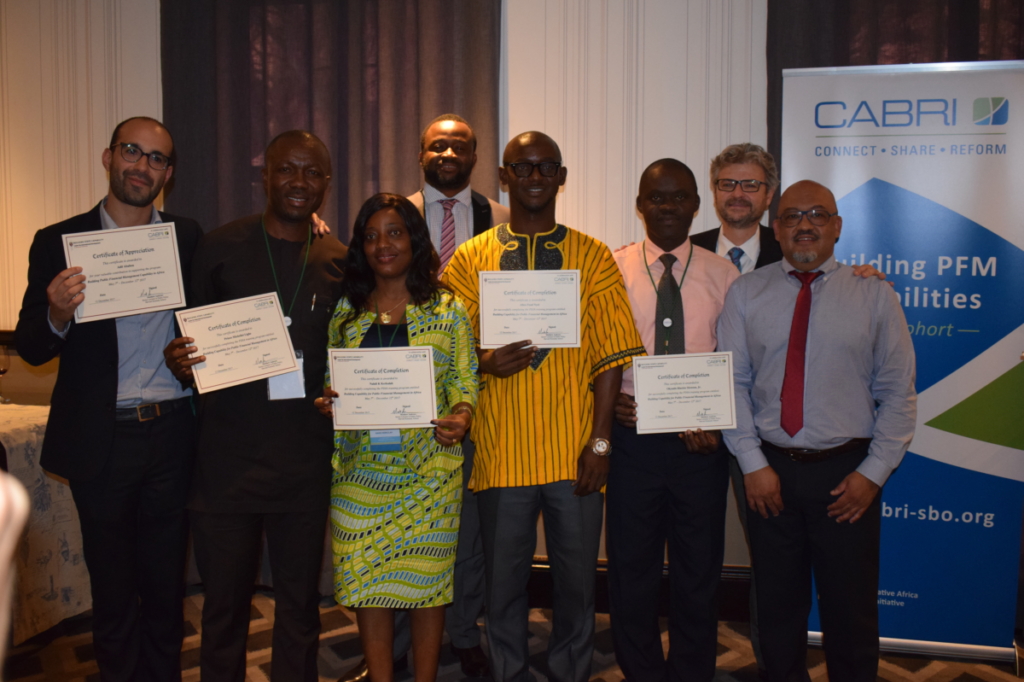
5. Nigeria
Problem: Weak capital project screening, inclusion process & implementation
What was done: One of the root causes of the problem was that there was no strict adherence to a budget calendar in the past, leading to delays in budget submissions and ultimately delays in procurement/implementation. The team developed a detailed budget calendar and submitted the 2018 appropriation bill much earlier than in recent years. The team also ensured that the Executive and Legislative branches met for a pre-budget bilateral meeting and secured parliament’s buy-in for some major projects and programs of the government.
What was learned: Political capital is very important in achieving key objectives in the programme. Periodic team meetings help keep the team focused on the goal. PDIA provides a simpler and better methodological approach to understanding problems and providing solutions.
What is next: The team will conduct a post-mortem on some of the key activities especially on the capacity building exercise so as to improve in the coming year. The team plans on deepening engagements between the Executive and Legislature at lower levels. Finally, the team Review the 2018 Appropriation Act when passed to identify any changes. This will determine if the team achieved their objective of reducing the number of infractions in the budget proposal.
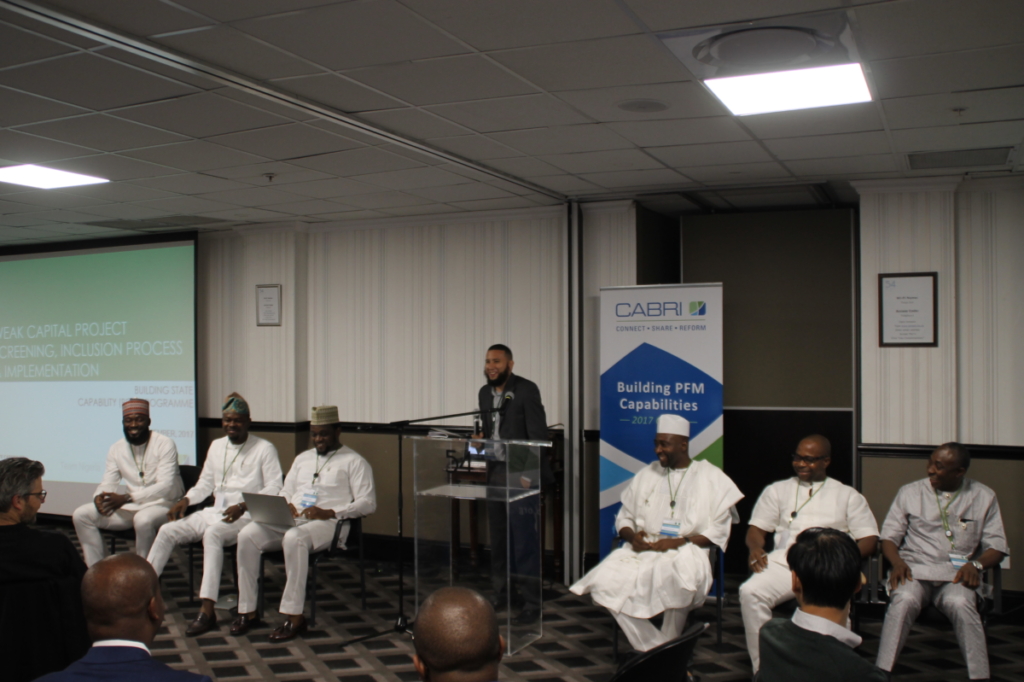
6. Sierra Leone
Problem: Expenditure commitments exceed total income envelope, resulting in unpaid bills and arrears.
What was done: The team identified its entry point to the problem as “low capacity in budget planning and formulation.” The team selected ten MDAs with persistent budget overruns and held a meeting with them to gain further insight about the causes of the budget overruns and extra-budgetary activities. The team helped ensure that all program managers participated in the budget planning process and that the MDAs effectively used the budget formulation templates.
What was learned: The team learned to identify and solve its problem using the PDIA approach. The team also learned that using data in telling stories to solve problems was really key in the work they did.
What is next: The full impact of the work of the team will be felt in fiscal year 2018. The work of the team has been incorporated into the New PFM Strategy (2018-2022). There will be a quarterly review and report on FY 2018 budget execution to minimize budget overruns.
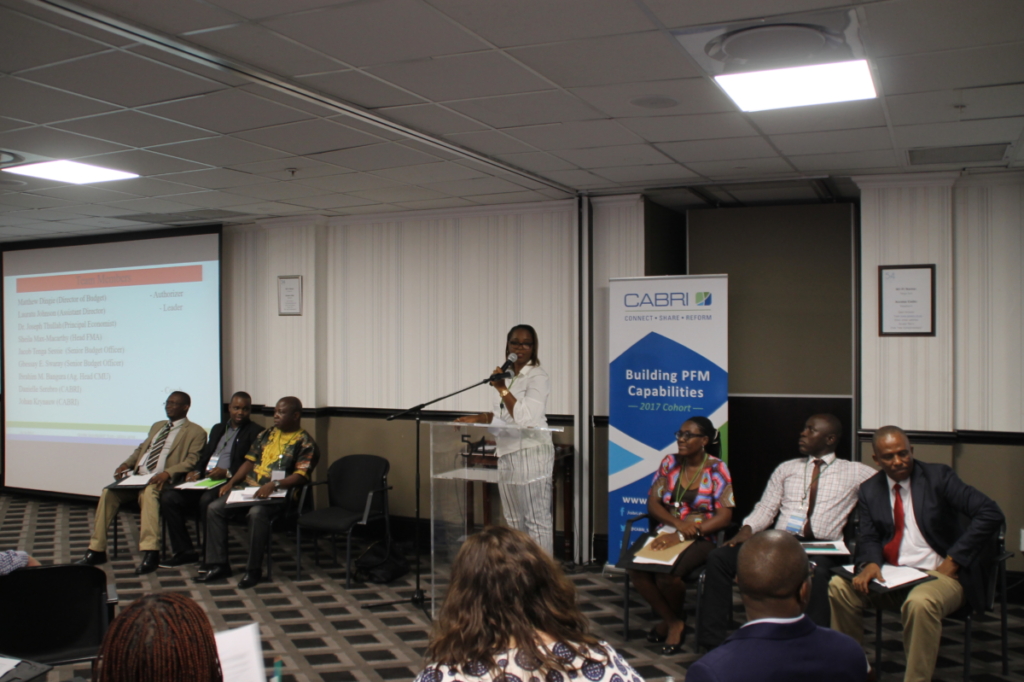
7. South Africa
Problem: poor conceptualization of infrastructure projects, leading to wasteful investments.
What was done: The team developed a “good infrastructure project” criteria and then identified case studies to test the criteria against. The team also used surveys to assist in understanding the problem from the point of view of key stakeholders.
What was learned: To gain a better understanding of any problem requires an iterative process to identify and validate the root causes. Implementing solutions without fully understanding the problem may render the solution ineffective
What is next: The team will embed stakeholder engagements in its processes and jointly develop guidelines with the user in mind. The team’s main next step is to develop a government-wide project appraisal and evaluation guideline (Rainbow Book) to ensure rigor of analysis and standardization in the appraisal process across government.
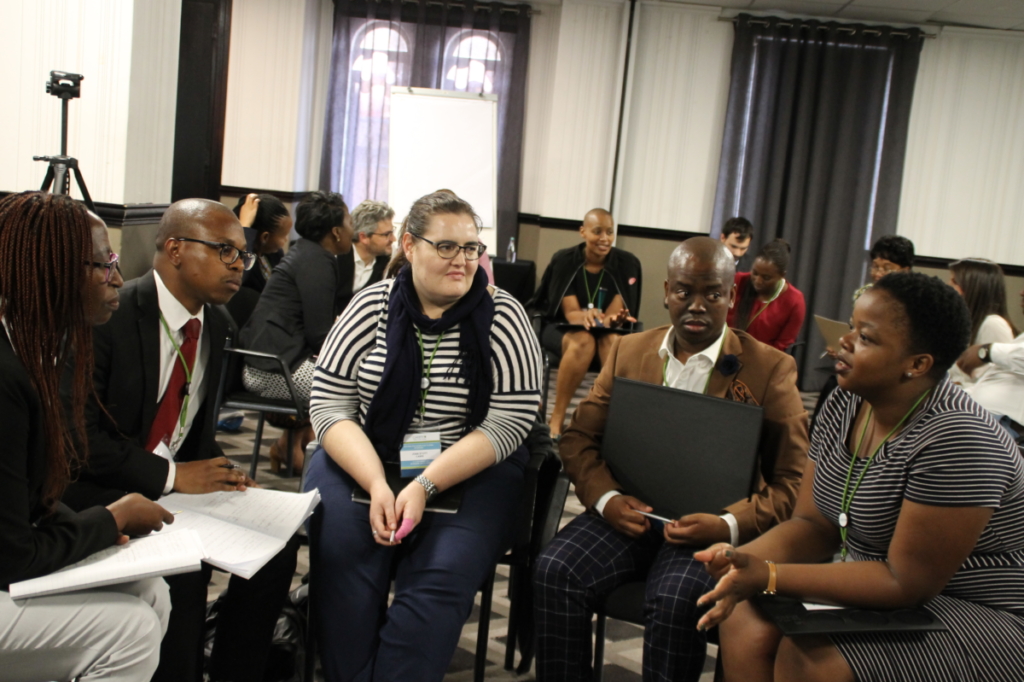
Note: This blog was originally published on the website of The Building State Capability (BSC) program at the Center for International Development (CID) at Harvard University with the title 'Building PFM Capabilities in Africa'